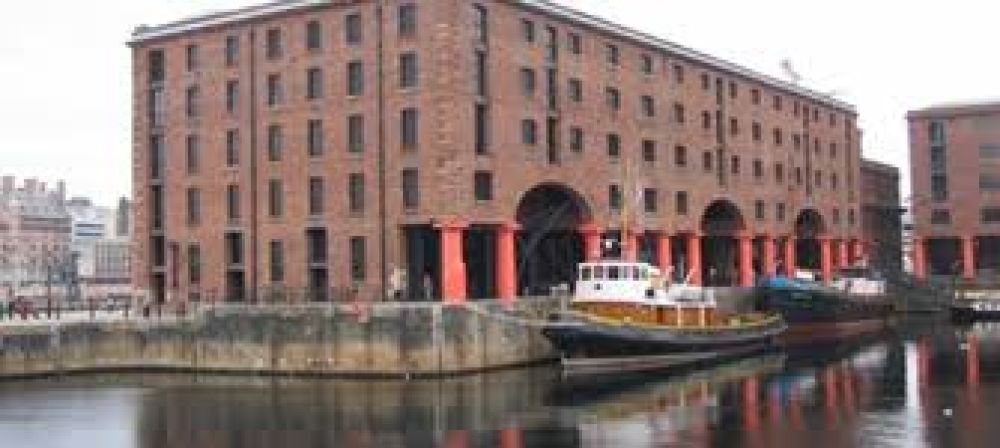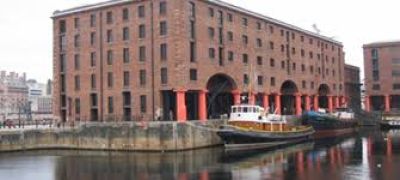

The International Slavery Museum in Liverpool offers a profound experience by exploring the historical significance of slavery through its permanent exhibitions. Visitors will embark on a journey that delves deep into the Atlantic Slave Trade and examines its impact on Africa, South America, the USA, the Caribbean and Western Europe. The displays include authentic historical artefacts, personal stories, and multimedia presentations that collectively unpack the narrative of slavery from ancient times to the present day. The museum confronts the injustices and explores the cultural influence of enslaved Africans on the world. The Riches of Africa, Enslavement and the Middle Passage, and the Legacy are some of the core sections of the permanent exhibition, each contributing to a comprehensive understanding of slavery's history and its contemporary relevance.
The guided tours at the International Slavery Museum offer an in-depth exploration of the galleries, providing visitors with expert insights into the history and the legacy of slavery. Museum guides take visitors through an engaging narrative, explaining the significance of various exhibitions while answering questions and fostering discussions. These tours not only cover the historical aspects of slavery but also address the ongoing fight against modern slavery and human trafficking. This personalized and educational approach enriches the visitor experience, making complex historical content accessible to all audiences.
The museum's educational workshops are tailored to school groups and focus on providing a deeper understanding of the transatlantic slave trade and its legacy. These workshops are interactive, challenging students to think critically and empathetically about the subject matter. They often involve hands-on activities, role-play, and discussions facilitated by experienced education officers. These sessions are aligned with the national curriculum and are designed to support learning in history, citizenship, and social studies. They provide an invaluable educational resource for young people to learn about the effects of slavery and to promote equality and justice.
The International Slavery Museum frequently hosts temporary exhibitions, which shine a spotlight on specific aspects of slavery or feature works by artists who confront issues of identity, human rights and social justice. These exhibitions revolve around topical themes and can range from historical collections to contemporary art pieces. They provide an evolving narrative of the slavery experience and its modern-day implications, engaging visitors with fresh perspectives and new narratives. The temporary exhibitions offer an immersive experience often featuring guest speakers, artists and activists.
The International Slavery Museum offers a range of family-friendly activities designed to engage children and young people. These activities aim to educate younger visitors about the history of slavery in an age-appropriate manner. The museum provides hands-on workshops, storytelling sessions, and craft activities that encourage creative learning and interaction. Through these sessions, children gain a fundamental understanding of the significance of the museum and its themes while participating in enjoyable and stimulating experiences.
The film screenings at the International Slavery Museum are an opportunity for visitors to engage with the themes of slavery through the medium of cinema. The museum curates a selection of films and documentaries that delve into the personal stories, historical contexts, and the ongoing impact of slavery worldwide. These screenings often coincide with notable dates and anniversaries related to slavery and human rights. The film screenings aim to evoke discussion and reflection among viewers and sometimes include post-show discussions with filmmakers, historians, or activists.
The International Slavery Museum's art installations provide powerful, visual statements that evoke emotional responses and stimulate conversation. These artworks are created by both renowned and emerging artists and often incorporate themes of resilience, resistance, and hope. These installations enhance the visitors' experience by offering contemporary interpretations of slavery's legacy through various mediums, including sculpture, painting, and multimedia art.
Throughout the year, the International Slavery Museum organises commemorative events to mark significant dates related to slavery and human rights, such as Slavery Remembrance Day and International Human Rights Day. These events often include lectures, performances, and ceremonies designed to honor the memory of those affected by slavery and to inspire commitment to combating racism and social injustice. The museum also uses these events to celebrate the resilience and creativity of African-descended communities and their contributions to world culture.
For those interested in academic research or personal discovery, the International Slavery Museum provides access to a dedicated resource center. The center holds a wealth of research materials, including books, papers, and digital archives related to the transatlantic slave trade and contemporary slavery issues. It is an invaluable resource for students, scholars, and anyone interested in gaining a deeper understanding of the subject. The welcoming environment and on-hand support from knowledgeable staff facilitate a comprehensive research experience.
The International Slavery Museum hosts a regular program of talks and lectures by academics, authors, survivors of modern slavery, and experts in human rights. These talks provide insight into both historical and current issues related to slavery, encouraging education, reflection, and dialogue. Attendees have the rare opportunity to engage directly with speakers, posing questions and participating in vital conversations that extend beyond the museum's walls. These events are instrumental in raising awareness and fostering a deeper understanding of the complexities surrounding slavery and freedom.
